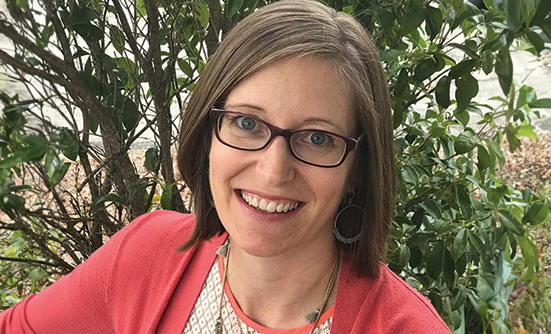It can be confusing and overwhelming to determine what to eat and what not to eat with a cancer diagnosis. Because of the amount of information available on nutrition and cancer from books, online, or even family and friends, it can be difficult to distinguish fact from fiction. Although the role of nutrition in cancer treatment is still evolving, the importance of adequate nutrition during your treatment has been well established. Lung cancer and its treatment can increase the nutritional demands of your body, making it important to continually try to nourish your body with adequate energy and nutrients.
The first nutritional goal during treatment is often to maintain weight. This especially affects patients with lung cancer who experienced unintentional weight loss before their diagnosis—about 60%. Maintaining weight is a focus, because when patients lose weight during their treatment, they are often losing it from their lean muscle mass. Loss of muscle can result in fatigue or deconditioning. Deconditioning is both the loss of your muscle tone and endurance. When deconditioning occurs, it can sometimes result in a delay in treatment. A second goal is to consume foods that will feed your body with the necessary nutrition. Eating a balanced diet will give you energy and nutrients to help you heal and recover from treatments.
It can be challenging; however, meeting your nutritional goals will help you manage potential side effects. Let’s discuss 3 common symptoms reported by patients undergoing lung cancer treatments and some strategies to maintain good nutrition during treatments. The 3 common symptoms include poor appetite, sore throat or mouth, and nausea. It is important to follow your medical team’s recommendations on what medicines to use to help manage symptoms, but you can also view nutrition as its own form of medicine to help you along your cancer journey.
Poor Appetite, Early Satiety, and Anorexia
Anorexia is defined as a loss of appetite or loss of desire to eat. Early satiety is slightly different in that you often have an appetite, but you get full after eating or drinking small portions. We can sometimes see these symptoms in patients before treatment begins, resulting in loss of muscle and weight. These symptoms are also often a side effect of several chemotherapy agents used to treat patients with lung cancer. If you are experiencing anorexia, seeing eating as part of your cancer treatment can be a helpful motivator to maintain good nutrition.
What Can I Do If I Lose My Appetite?
Loss of appetite is one of the toughest roadblocks to maintaining nutrition. However, there are several things you and your family can do to help if you
are experiencing this symptom, both before and during treatment. One method is to eat by the clock, rather than waiting to be hungry; that is, have a snack or small meal every 2 to 3 hours. We encourage you to opt for high-calorie and high-protein foods or beverages to maximize your intake.
High-protein foods include milk and other dairy products, eggs, meat, poultry, fish, legumes (beans, peas, and lentils), nuts, and seeds. Foods that provide a good source of calories include healthy fats and oils, such as nuts and avocados, and whole-fat dairy or nondairy foods, such as heavy cream or coconut milk. Protein shakes or protein powders are also helpful tools if you are experiencing a loss of appetite, because liquids tend to be less filling than solid foods. Your family and/or caregiver can also try to create a pleasant eating environment to encourage appetite, including nice lighting, special plates, or inviting other friends or family to join at mealtimes.
- An open-faced peanut butter sandwich with 1 slice whole grain toast, 2 tablespoons almond or peanut butter, and 1 sliced banana or other fruit. Drizzle with honey as desired
- Trail mix with 2 tablespoons of dried fruit (cranberries, apricots, raisins, etc), 2 tablespoons almonds or other nuts, and 1 oz pretzels
- Easy protein salad with 1 cup cooked chicken or fish, ¼ cup diced celery, 1 tablespoon oil, and ½ to 1 tablespoon mayonnaise
Recipes and Snack Ideas1
Mucositis and Esophagitis
Mucositis and esophagitis happen when the lining of your mouth or throat is inflamed, which can be caused by chemotherapy or radiation. It looks like mouth sores or ulcers and can feel like a painful or sore throat. We also sometimes hear it described as a lump in the throat. These symptoms are often accompanied by indigestion, reflux, belching, and feelings of fullness. To assist in controlling your mouth and/or throat pain, several numbing rinses and medications can be prescribed by your medical team.
What Can I Eat If I Have Mucositis Esophagitis?
Because your mouth and throat tend to be more sensitive with this side effect, it is best to choose foods low in acidity and to avoid tomato products. Other spices to avoid include chili, chili powders, black pepper, and hot sauces. To avoid further irritating your mouth or throat, it can also be helpful to choose foods softer in texture. We encourage adding bland or mild sauces and gravies as they can help moisten the foods and make them easier to chew and swallow. If you are making your own protein shakes during your treatment, don’t feel like you have to avoid fruits completely. Fruits can still be added for flavor, vitamins, minerals, and fiber; however, choose low-acid fruits such as melons, bananas, or peaches.
- Prepare 2 scrambled eggs with ¼ cup shredded cheese, or stir in ¼ cup ricotta cheese. Add extra oil or butter in pan while cooking, and top with several slices of avocado (optional)
- Mix ¾ cup oatmeal or hot cereal made with whole milk with 1 tablespoon creamy nut butter and ½ sliced banana. Add honey or sweetener as desired
- Make a homemade smoothie with 1 cup dairy or dairy-free milk, 1 scoop protein powder, 1 cup fresh or frozen fruit, and 1 tablespoon oil. Blend to desired consistency
Recipes and Snack Ideas1
Nausea and Vomiting
Nausea and vomiting may be caused by several factors, including taste changes, mucous drainage, fatigue, and pain. Chemotherapies that are often recommended for lung cancer patients, such as carboplatin and cisplatin, also have a high risk of inducing nausea. Nausea can be anticipatory, meaning that it develops prior to receiving treatment, or it can occur in an acute or delayed time frame. Acute nausea occurs within 24 hours of treatment, whereas delayed nausea can occur any time after 24 hours and for up to 7 days after treatment is given. Because of these differences, it is crucial to review how to take antinausea medications recommended by your medical team.
What Can I Eat If I Am Feeling Queasy?
It is important you are staying hydrated during your treatments, so we encourage trying to sip on liquids throughout the day. If you are experiencing nausea, we advise consuming cool or room-temperature foods, because cooking releases the food’s natural odors, which can exacerbate nausea. Some patients do find it helpful to excuse themselves from the kitchen during food preparation times. What food groups you choose can also make a difference. Bland starches, including white pasta, crackers, and rice, are more easily digested than other types of foods. Ginger tea and candies can calm the stomach and have been shown to help reduce nausea in some people. Foods that can worsen nausea include fatty or greasy foods, because they are harder for the body to digest and can irritate the stomach.
- Blend a juice-based protein supplement (Ensure Clear, Boost Breeze, or Boost Soothe) with ice, and eat with spoon
- 1 cup low-fat cream-based soup with saltine crackers
- Simple sandwich with white bread (or English muffin, or ½ bagel), 2 oz lean lunch meat, and 2 teaspoons low-fat mayonnaise
Recipes and Snack Ideas1
Although research shows that the patients with lung cancer do require a greater intake of both calories and protein, we do not recommend additional vitamins, minerals, or herbal supplements during your treatments. It is unclear at this time if supplements are helpful, or if they pose a risk to interact with medications. If you have questions about the safety of a supplement you would like to take while on cancer treatment, we encourage you to check with your medical team.
Conclusions and Take-Aways
Eating habits can take time to change, and managing them can be challenging on top of other aspects of lung cancer treatment. Any effort you can make to maintain nutrition during treatments, whether it be by taking one or several of these suggestions, can be helpful. We encourage meeting with an oncology dietitian if you would like more information and guidance on how to maintain good nutrition during treatments. Using research-based resources, both print and online, are also great tools. The American Cancer Society has developed a cookbook, What to Eat During Cancer Treatment, that has recipes organized into treatment-related symptoms, making it 1 step easier for lung cancer patients and their families to ensure proper nutrition. There are great online resources for lung cancer patients and caregivers; for example, the American Cancer Society (www.cancer.org) and the American Institute for Cancer Research (www.aicr.org). These resources include evidence on nutrition and cancer, easy-to-follow recipes; and information on how to maintain nutrition during and after treatments.
Reference
- Dana-Farber Cancer Institute. Recommended Nutrition Education Materials. www.dana-farber.org/health-library/articles/recommended-nutrition-education-materials.












